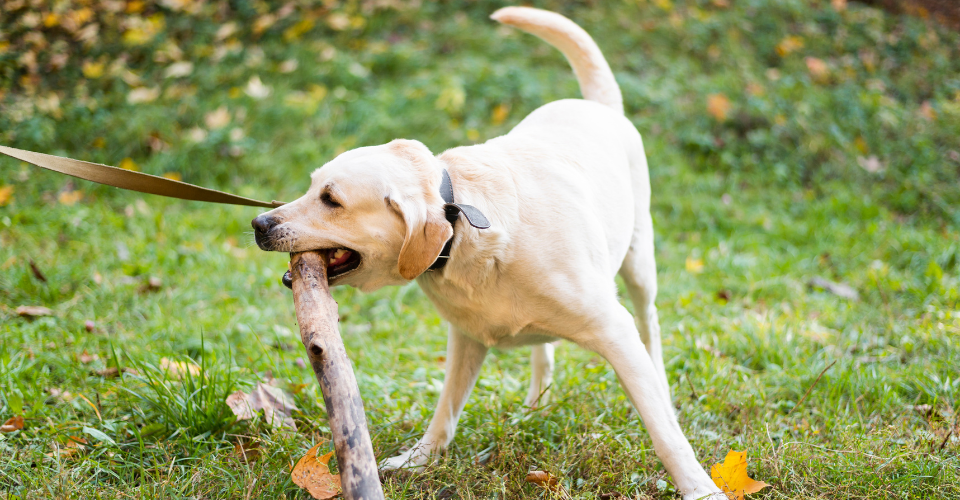It isn’t entirely surprising to find your dog almost dutifully howling in response to the wailing siren of an ambulance or police car passing by. The behavior though peculiar, is not unheard of. Nonetheless, it does leave many people utterly bewildered. Why do dogs howl at sirens? If only we could ask them.
Because despite all the advances in pet psychology, so many things are still left to theories that make the most sense. And this is what we will do. We will go over the most plausible explanations and see if there is a definite answer to why dogs howl at sirens and horns.
Why Do Dogs Howl At Sirens?
Howling is one of the many vocalizations dogs use for communication. It is normal canine behavior. So, why the fascination with sirens?
There are a few theories to explain this behavior. The first and foremost theory associates it with their wolf ancestors, who used howling as a call for communication. So, when dogs hear a loud, high-pitched sound, be it a siren, music, or any other sound, they think it is a howl and need a befitting answer.
Other possible reasons relate to the dog’s job as a protector of its family. Because the canine might assume the loud noise is indicative of an approaching threat and believes it to be its duty to let the family know that they need to watch out for the danger. This behavior might be observed more frequently in dogs kept for protection.
Or the pet assumes it as a trespasser intruding on the property. So, it needs to chase it away, by howling vocally. Now, not all dogs respond the same or with the same intensity, with some breeds having a higher propensity for the behavior than others.
And if you do not understand how a dog might actually howl at the sound of a siren, watch this cute video of a beautiful Golden Retriever doing just that.
Exploring the Reasons Behind Dogs Howling at Sirens
Before we delve any deeper into the reasons why dogs howl, it will be better first to understand a howl. This is the time when stereotypes really come in handy. Just recall a clichéd clip from the movies showing a wolf with a full moon in the background, letting out a deep, loud mournful cry while it throws back its head. Got it? Perfect, you just understood the sound.
Now we do have a basic idea of why dogs howl at sirens. Simply put, it is an instinctive behavior. But it is time to dig a little deeper to understand why your dear pup joins in on the chorus every single time.
1. Dogs Howl to Acknowledging the Siren: Homage to Wolf Ancestors
Dogs have shared ancestry with wolves. The latter are pack animals who habitat the woods. And they have adapted marvelously to thrive in the wild. One such measure is their effective communication to gather the members, warn against a threat, or acknowledge when the calls for either are made. And how do they make these calls? By howling.

Dogs, in contrast, have been domesticated for centuries and are rightfully believed to have habits and demeanor distinctly their own. However, they do retain some instincts of their wild ancestors. One such characteristic is howling. Dogs howl at other members of their species when in pain, while facing anxiety, and in response to loud sounds such as a band playing or a siren blaring.
Behaviorists theorize that in their heads, these loud sounds are similar to the calls made by other members of their species. Would not it be rude if they did not answer a call made by one of their own?
So, they respond with a fervent howling to acknowledge it.
2. Dogs Howl to Warn the Family
Dogs have a strong pack mentality. It is an effective strategy to brace the harsh environs by moving in a group with established hierarchies and clearly defined roles. One of the things that the pack offers is security and support. They get each other’s back and warn when an intruder or possible threat approaches.

This quality has effectively been passed down to domestic canines and has been one of the primary sources of their successful role as guard dogs. As an expression of the very instinct, you find some breeds of dogs greet even the most docile of strangers with just as much aggression as someone trying to break into their home.
Naturally, when they hear a loud wailing sound that they already perceive as the cry of another animal, they fall back to using their instinctive call to warn the pack against an intruder/threat. The vocalization here happens to be…. you guessed it, a howl.

3. Dogs Howl to Chase Away a Possible Threat
Okay, dogs need to acknowledge the howl of their fellow species and have an innate desire to protect their family. Is there anything else to it? Well, yes. Canines do not always like to settle their scores by roughing up their opponents. So many times, they simply do so by, so to say, vocally overpowering their opponent.
So, if they perceive certain high-pitched sounds as a threat, they might proceed to fight it off by howling back at it, like any sensible dog. Honestly, violence is not the best policy, and if using a loud voice can settle the matter, then why not?
It can be a nuisance only if you live closer to a highway, a fire brigade building, or even worse, near a healthcare facility or school.
Does it Hurt Dogs When They Hear Sirens?
Since dogs can hear a sound from far farther and at frequencies that humans cannot, it is understandable why many people would entertain the idea. But it is not the case. Since so many dogs are affected by the sound and would haste to respond to it, many presume it hurts their auditory abilities.
But to associate a sound as a trigger of pain or fear, you need to look for a reaction symptomatic of these feelings. Such as turning, running away from the sound, trying to hide from it, or holding their tail between their legs. But none of that happens when dogs hear a siren. In fact, so many of them would not even bother responding to it. Yes, we will get to that below.
Do All Dogs Howl When They Hear a Siren?
Of course not. You could notice it for yourself. So many dogs have a placid disposition, such as these ten calmest dogs, and would not easily be bothered. In comparison, it would not take much to rile up other dog breeds, such as these aggressive dog breeds.
In a nutshell, some breeds are more reactive toward loud sounds than others. But it still comes down to each individual dog.
Breeds More Susceptible to Howling at Sirens
While no two dogs are the same, some breeds are indeed more inclined towards howling than others. It probably has something to do with selective breeding to develop the desired traits among them.
Those seemingly closer to the wolves in their genetic makeup are more likely to howl.
These include;
- American Eskimos
- Basset Hounds
- Beagles
- Coonhounds
- Foxhounds
- Huskies
- Malamutes
Besides their genetic closeness to wolves, some breeds may have this trait owing to their development as hunting dogs. Vocalization would have been a desirous trait in such domesticated canines, therefore must have been inculcated in their breed development.
Stopping Your Dog from Howling At Sirens
As we have tried to explain, the howl stems from their natural tendency. But if it does get too much or your location warrants such happenings too often, you want to put a stop to this. You could try to train them not to respond to the sound of a siren.
But let us warn you, it will be slightly more difficult than other things you have taught them thus far.

Here is how to train your dog to ignore the sound of a siren;
- Ignore the Dog While It Howls: This is of primary importance because if you pay any attention to it, even try to stop it at them, it will serve as a reinforcement for the behavior. Simply turn away and pretend you do not hear what the dog is doing.
- Teach The Dog “Quiet” Command: If you can teach a dog to speak, you can teach it to be quiet too. When the dog is in a happy mood, teach it to go quiet on your command. Remember to reinforce it with an effective reward system relying on both treats and ample encouragement.
- Practice When You Hear a Siren: Once they have perfected following the quiet command, you can practice it whenever you hear a siren. Make sure that the desired behavior is strengthened with a reward. And keep your calm if they fail to do so. The point is not to encourage them any more than they already are.
- Persist and Persevere: Each dog is a unique individual. Despite certain breeds showing talent or propensity for certain things, there are always personal elements that need to be taken into account. So, be patient and keep up with the training.
- Consult a Pet Behaviorist: This is an excellent option for someone who is either not very adept at training dogs or would otherwise like an expert to help them navigate it. Also, if your efforts do not bear fruit, seeking professional help could be the salvation you seek.
Final Word: Why Do Dogs Howl At Sirens?
The most prominent explanation for dogs howling at sirens suggests they do so as an instinctive response to a howl from their own kind. Based on the assumption, they perceive loud sounds as howls from fellow canines. Other possible reasons are warning their family against danger or scaring off strangers.





